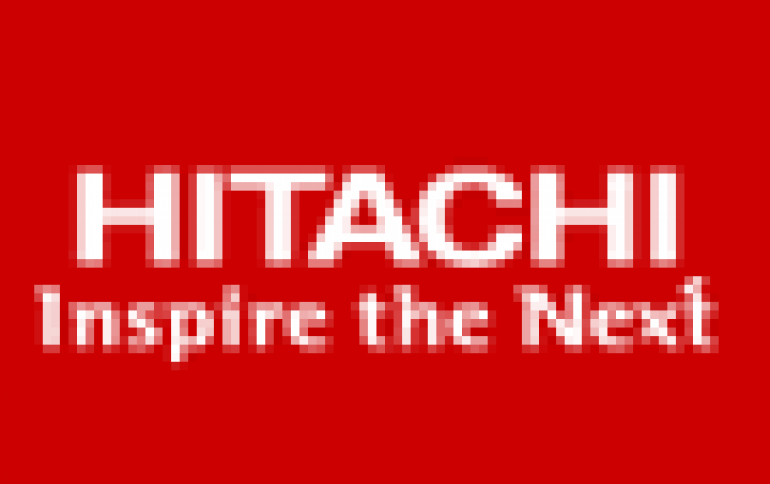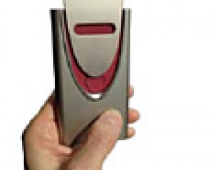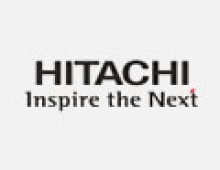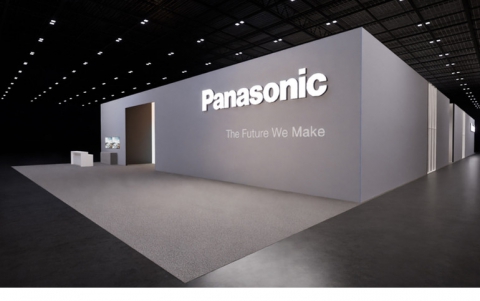
Hitachi Maxell Finally Becomes a Wholly Owned Subsidiary of Hitachi
Hitachi, Ltd. and Hitachi Maxell, Ltd. announced today that they have concluded a share exchange agreement and Hitachi Maxell will become a wholly owned subsidiary of Hitachi.
Hitachi had conducted a tender offer for the shares of Hitachi Maxell from August 20 to October 8, 2009, to make Hitachi Maxell a wholly owned subsidiary.
On January 14, 2010, the companies determined the method for the share exchange to make Hitachi Maxell a wholly owned subsidiary of Hitachi, based on the result of the tender offer.
The Hitachi Group, which consists of Hitachi, its subsidiaries and affiliated companies, conducts a wide range of business activities from the development, production and sales of offerings to the provision of relevant services in seven industry segments: Information & Telecommunication Systems; Electronic Devices; Power & Industrial Systems; Digital Media & Consumer Products; High Functional Materials & Components; Logistics, Services & Others; and Financial Services.
To reinforce this social innovation business, the Hitachi Group believes it is necessary to concentrate its business resources on the lithium ion batteries business, which will be a key device of the industry along with motors, invertors and power semiconductors.
Regarding Hitachi Maxell, Ltd., the dried batteries and magnetic tape divisions of Nitto Electric Industrial Co., Ltd., were set up independently as Maxell Electric Industrial Co., Ltd., which commenced operations in 1961 and became Hitachis consolidated subsidiary in 1964, changing its corporate name to Hitachi Maxell, Ltd. Currently, Hitachi Maxell has been accelerating a change in its business portfolio to improve profitability and to ensure new growth.
Specifically, Hitachi Maxell is concentrating its business resources in the priority businesses of "batteries," "optical components" and "functional materials & components," each of which has high potential of future growth and profitability.
Hitachi Maxell has been steadily expanding the business related to lithium ion rechargeable batteries, which is the core product line of its batteries business, one of its priority businesses. Specifically, in addition to products for mobile phones, which had been a main business field, Hitachi Maxell aims to expand its batteries business into power tools and electric-supported bicycles fields by developing new cylindrical products and laminated products in addition to conventional prismatic lithium ion rechargeable batteries. In February 2009, to supply electrode materials not only for consumer use but also for use in automobiles and industries, Hitachi Maxell established a new electrode manufacturing plant with high-speed and high-precision coating systems that harness its outstanding proprietary technologies.
In the severe economic environment of the worldwide structural recession that has been continuing since the second half of the previous fiscal year, the Hitachi Group must urgently optimize the allocation of the entire Groups resources and accelerate the restructuring of the business portfolio to secure a foundation for future growth.
Under such circumstances, since the end of March 2009, Hitachi and Hitachi Maxell have discussed various measures to improve the enterprise value of both companies and concluded that Hitachis acquisition of Hitachi Maxell and making it a wholly owned subsidiary to establish a more stable capital relationship would be beneficial to enhance the enterprise value not only of Hitachi Maxell but also of the entire Hitachi Group.
Hitachi and Hitachi Maxell believe that both companies can favorably survive the competition in the automobile, industrial sectors and railway vehicles by aggressively combining the lithium ion batteries development capability, mass production technology and other tangible and intangible assets in the lithium ion batteries-related business areas that Hitachi Maxell has acquired in the consumer products field and Hitachis system capability and diverse business infrastructure, which are expected to become a reliable part of proposals for system solutions in industrial sectors where future development is expected. The companies also believe that Hitachis system solutions in the industrial sector will significantly differentiate both companies from other consumer product manufacturers that produce lithium ion rechargeable batteries by expanding the lithium ion batteries business that is a key device of the social innovation business along with motors, invertors and power semiconductors and by enhancing solution proposals which is integrated with such lithium-ion rechargeable batteries business and social and industry systems.
Further, concerning research and development, in the markets for in-vehicle products and products for industrial and social infrastructure where future growth is expected, there will be many opportunities to apply Hitachis research resources for products and services and it will be relatively easier for collaborations between Hitachi Maxell and Hitachi to lead to tangible results. Both companies expect tighter technological collaborations based on the integrated management of the Hitachi and Hitachi Maxell to generate significant synergies.
However, Hitachi Maxells competitiveness is expected to be substantially improved by reinforcing the capital relationship with Hitachi. Through the integration, Hitachi Maxell will receive further credit, supported by the Hitachis sturdy financial base, thereby enabling Hitachi Maxell to make flexible judgments for larger-scale investments.
With regard to computer tapes and video tapes for broadcasting, for which Hitachi Maxell holds high market shares, and storage and broadcasting and telecommunications equipment, on which Hitachis Information & Telecommunication Systems Group has been focusing, equipment and media has been developed at separate companies. In the future, however, Hitachi can expect faster product development and the acquisition of more customers through the collaboration between Hitachi Maxell and Hitachi, harnessing each companys specialties and converging the development resources of both companies. It will also become possible to offer increasingly valuable and optimal solutions to customers. With regard to camera lens and optical pickup lens, which are mainstay products in the optical components business on which Hitachi Maxell is focusing, such as the lens for finger vein authentication systems, monitoring camera systems for crime prevention, in-vehicle cameras and BD/DVD/CD all-compatible drives that the Hitachi Group has commercialized, cooperation from the development stage will make it possible to differentiate them from other companies products and reinforce product competitiveness.
The Hitachi Group, which consists of Hitachi, its subsidiaries and affiliated companies, conducts a wide range of business activities from the development, production and sales of offerings to the provision of relevant services in seven industry segments: Information & Telecommunication Systems; Electronic Devices; Power & Industrial Systems; Digital Media & Consumer Products; High Functional Materials & Components; Logistics, Services & Others; and Financial Services.
To reinforce this social innovation business, the Hitachi Group believes it is necessary to concentrate its business resources on the lithium ion batteries business, which will be a key device of the industry along with motors, invertors and power semiconductors.
Regarding Hitachi Maxell, Ltd., the dried batteries and magnetic tape divisions of Nitto Electric Industrial Co., Ltd., were set up independently as Maxell Electric Industrial Co., Ltd., which commenced operations in 1961 and became Hitachis consolidated subsidiary in 1964, changing its corporate name to Hitachi Maxell, Ltd. Currently, Hitachi Maxell has been accelerating a change in its business portfolio to improve profitability and to ensure new growth.
Specifically, Hitachi Maxell is concentrating its business resources in the priority businesses of "batteries," "optical components" and "functional materials & components," each of which has high potential of future growth and profitability.
Hitachi Maxell has been steadily expanding the business related to lithium ion rechargeable batteries, which is the core product line of its batteries business, one of its priority businesses. Specifically, in addition to products for mobile phones, which had been a main business field, Hitachi Maxell aims to expand its batteries business into power tools and electric-supported bicycles fields by developing new cylindrical products and laminated products in addition to conventional prismatic lithium ion rechargeable batteries. In February 2009, to supply electrode materials not only for consumer use but also for use in automobiles and industries, Hitachi Maxell established a new electrode manufacturing plant with high-speed and high-precision coating systems that harness its outstanding proprietary technologies.
In the severe economic environment of the worldwide structural recession that has been continuing since the second half of the previous fiscal year, the Hitachi Group must urgently optimize the allocation of the entire Groups resources and accelerate the restructuring of the business portfolio to secure a foundation for future growth.
Under such circumstances, since the end of March 2009, Hitachi and Hitachi Maxell have discussed various measures to improve the enterprise value of both companies and concluded that Hitachis acquisition of Hitachi Maxell and making it a wholly owned subsidiary to establish a more stable capital relationship would be beneficial to enhance the enterprise value not only of Hitachi Maxell but also of the entire Hitachi Group.
Hitachi and Hitachi Maxell believe that both companies can favorably survive the competition in the automobile, industrial sectors and railway vehicles by aggressively combining the lithium ion batteries development capability, mass production technology and other tangible and intangible assets in the lithium ion batteries-related business areas that Hitachi Maxell has acquired in the consumer products field and Hitachis system capability and diverse business infrastructure, which are expected to become a reliable part of proposals for system solutions in industrial sectors where future development is expected. The companies also believe that Hitachis system solutions in the industrial sector will significantly differentiate both companies from other consumer product manufacturers that produce lithium ion rechargeable batteries by expanding the lithium ion batteries business that is a key device of the social innovation business along with motors, invertors and power semiconductors and by enhancing solution proposals which is integrated with such lithium-ion rechargeable batteries business and social and industry systems.
Further, concerning research and development, in the markets for in-vehicle products and products for industrial and social infrastructure where future growth is expected, there will be many opportunities to apply Hitachis research resources for products and services and it will be relatively easier for collaborations between Hitachi Maxell and Hitachi to lead to tangible results. Both companies expect tighter technological collaborations based on the integrated management of the Hitachi and Hitachi Maxell to generate significant synergies.
However, Hitachi Maxells competitiveness is expected to be substantially improved by reinforcing the capital relationship with Hitachi. Through the integration, Hitachi Maxell will receive further credit, supported by the Hitachis sturdy financial base, thereby enabling Hitachi Maxell to make flexible judgments for larger-scale investments.
With regard to computer tapes and video tapes for broadcasting, for which Hitachi Maxell holds high market shares, and storage and broadcasting and telecommunications equipment, on which Hitachis Information & Telecommunication Systems Group has been focusing, equipment and media has been developed at separate companies. In the future, however, Hitachi can expect faster product development and the acquisition of more customers through the collaboration between Hitachi Maxell and Hitachi, harnessing each companys specialties and converging the development resources of both companies. It will also become possible to offer increasingly valuable and optimal solutions to customers. With regard to camera lens and optical pickup lens, which are mainstay products in the optical components business on which Hitachi Maxell is focusing, such as the lens for finger vein authentication systems, monitoring camera systems for crime prevention, in-vehicle cameras and BD/DVD/CD all-compatible drives that the Hitachi Group has commercialized, cooperation from the development stage will make it possible to differentiate them from other companies products and reinforce product competitiveness.





















